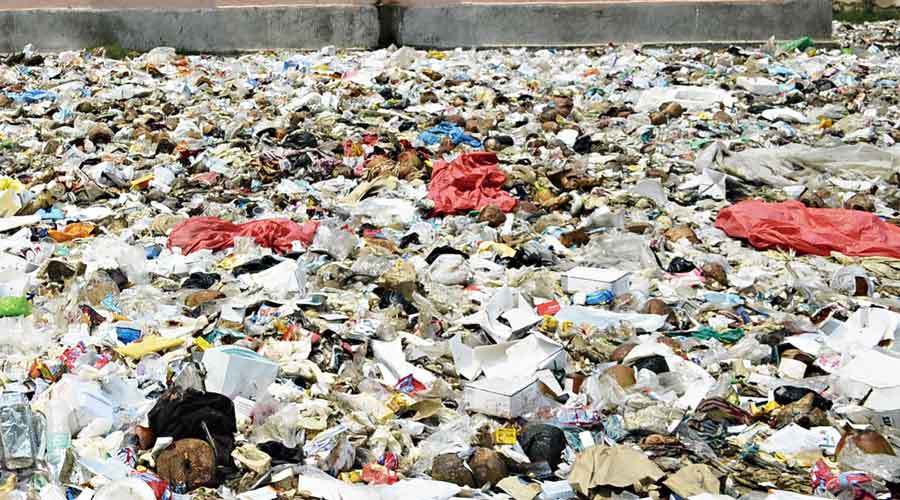The Kolkata Municipal Corporation (KMC), which has been hauled up by the National Green Tribunal for not processing the city’s solid waste, has decided to set up waste processing units in a portion of Dhapa, near the present waste dumping site.
About 4,000 tonnes of solid waste are generated in the city every day but only 525 tonnes are processed.
The 4,000-odd tonnes do not include construction and demolition waste. A 500-tonnes-per-day capacity processing plant for construction and demolition waste has been set up in New Town by the KMC.
According to Solid Waste Management Rules 2016, the civic body should dump only inert waste like dust and silt in the waste dumping ground or landfill site, said a KMC official. Inert waste is waste that has no value in the recycling chain.
But in reality, the bulk of the solid waste collected from the city is dumped at the Dhapa waste disposal site.
Processing of solid waste means segregating the various kinds of waste and using them as raw materials in the production cycle of various industries. For example, food waste can be used to produce manure or bio-CNG that can be used as fuel for vehicles. Plastic can be reused in the production cycle in cement plants or to make new plastic products.
On Monday, the mayoral council of the civic body decided to build the new processing units on 55 hectares of land that belong to the KMC but where many farmers have been growing crops for years.
The KMC will offer a solatium to the farmers when it starts to take back the land.
“The mayoral council has approved setting up of the processing units in Dhapa. The farmers will be offered a solatium. A survey needs to be done to see how many farmers are there,” said Debabrata Majumdar, mayoral council member heading the KMC’s solid waste management department.
In September 2022, the National Green Tribunal had expressed unhappiness with the state’s solid waste management and asked the government to create an account and deposit Rs 3,500 crore in it.
The money, the tribunal said, would be used for solid and liquid waste management.
The tribunal mentioned in the order that Bengal generated 13,709 tonnes of solid waste daily, but only 3,047 tonnes were processed. The order also mentioned that 1,490 million litres of sewage remained untreated every day.
Being the largest municipal corporation in Bengal, the KMC is sitting over a huge volume of untreated or unprocessed waste.
The Solid Waste Management Rules, 2016, had fixed deadlines for the processing to become operational, but the KMC missed most of the deadlines.
Among the processing units of the KMC are a 500-tonnes-per-day capacity composting plant, 5-tonnes-per-day capacity bio-CNG plant and a 2-tonnes-per-day capacity plastic processing plant. There are also a few other composting plants of smaller capacities.
Once the new processing units are built only the inert waste will go to the landfill site.
